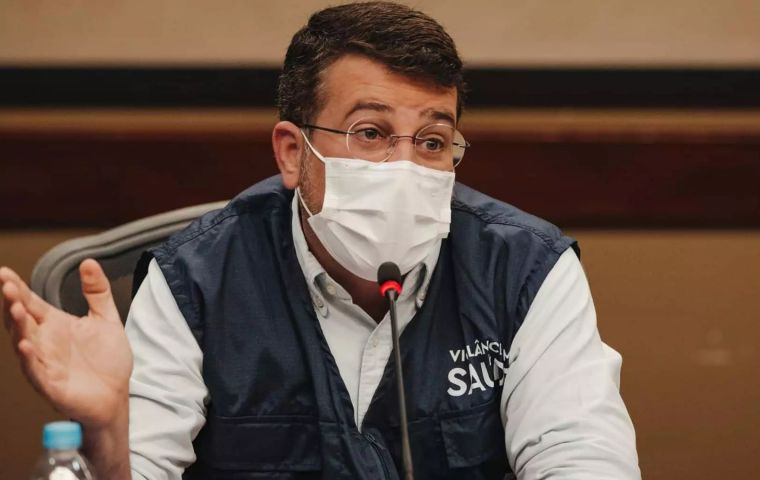MercoPress. South Atlantic News Agency
Dengue epidemic over in Rio de Janeiro
 Rio de Janeiro health authorities will now focus on influenza, Soranz said
Rio de Janeiro health authorities will now focus on influenza, Soranz said Rio de Janeiro City authorities Friday announced that the dengue fever epidemic in the country's former capital was over, Agencia Brasil reported. The worst part of the outbreak was recorded between Feb. 18 and 24.
Rio's Municipal Health Secretary Daniel Soranz said that during the crisis seven deaths and 82,000 cases were confirmed, but with a a significant reduction in number in recent weeks.
At the peak of the crisis a little over a month ago, 13,511 cases were registered. But between March 17 and 23, there were 5,395 cases, a 33% reduction from the previous week.
“There has been an emptying out of the dengue care centers, so we can already say that we have left the epidemic period and the dengue emergency in the city,” said Soranz.
According to him, around 1,100 health professionals were involved in the mobilization against dengue. The ten service centers that opened in February were to begin being demobilized starting Friday.
“We can now turn this workforce to combating influenza and to the main vaccination campaign on the calendar, which is the influenza vaccine,” Soranz added.
The official also explained that it would be the last week of immunization for children aged 10 to 14 with the first dose of the dengue vaccine. “There are still 40,000 doses of the dengue vaccine in stock. So we're asking parents who haven't yet brought their children to protect themselves to go to a health center to get the first dose of the vaccine.”
Meanwhile, the federal Health Ministry announced that dengue vaccine doses were to be distributed among 154 more municipalities nationwide, so that residents may start getting immunized next month.
The 154 new municipalities are part of 11 health regions with a resident population of 100,000 or more, it was explained. All these cities have had high rates of transmission of the disease in recent months. Among them are Recife (Pernambuco), Florianópolis (Santa Catarina), and Campinas and São Paulo (São Paulo State).
The vaccine focused on children aged 10 to 14, who make up the highest proportion of hospitalizations for the disease. The vaccine's two doses must be administered three months apart.
(Source: Agencia Brasil)




Top Comments
Disclaimer & comment rulesCommenting for this story is now closed.
If you have a Facebook account, become a fan and comment on our Facebook Page!